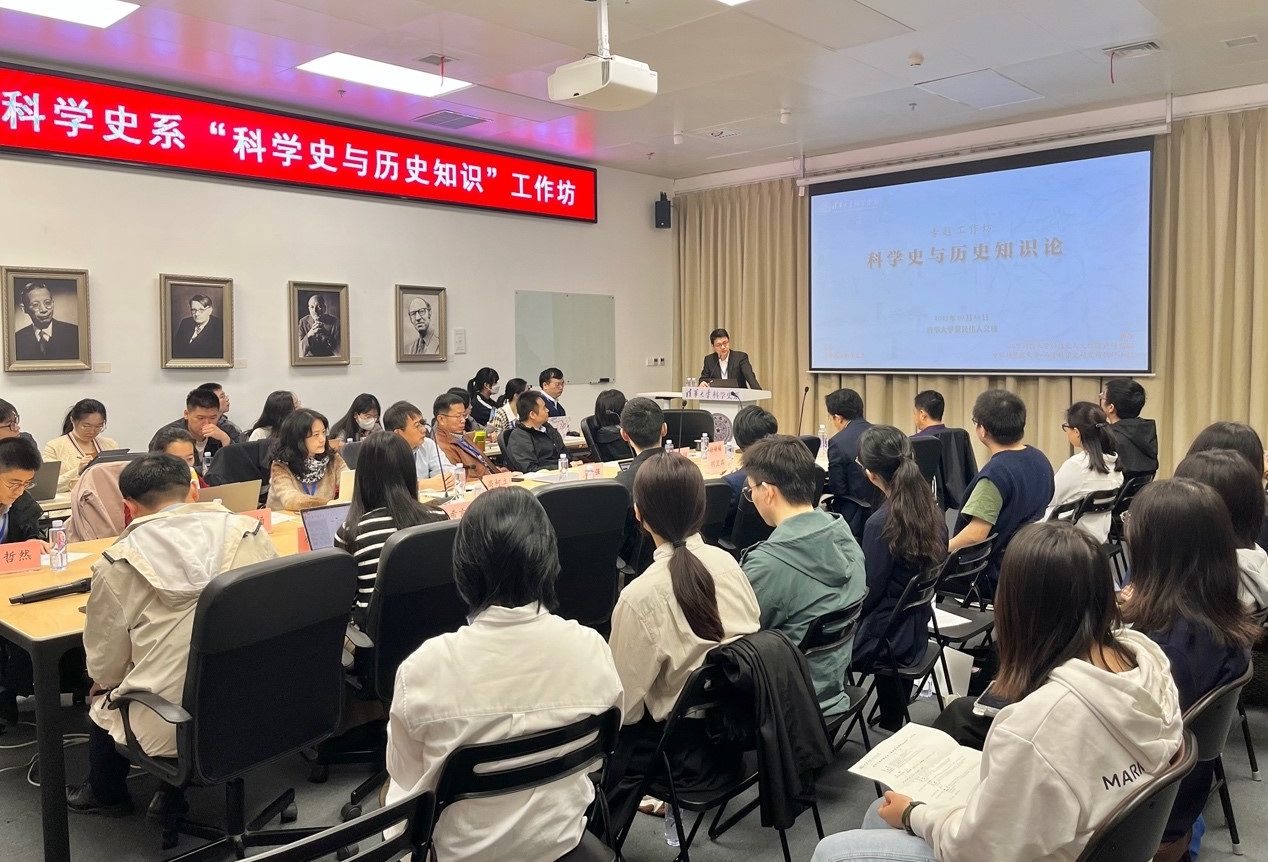
On October 14, 2023, the First Special Workshop on "History of Science and Historical Epistemology," organized by the Department of History of Science at Tsinghua University, was successfully held in the Meng Minwei Humanities Building. The workshop was chaired by Associate Professor Shen Yubin from the Department of History of Science. Participants included Professor Wu Guosheng, Director of the Department of History of Science; Assistant Professor Jiang Che; Ph.D. student Yan Bichen; Researcher Meng Qiang from the Institute of Philosophy, Chinese Academy of Social Sciences; Associate Professor Gao Kelí and Associate Professor Jin Shixiang from the School of History of Science and Cultural Relics at University of Science and Technology Beijing; Lecturer Hu Su; Sun Mengmeng, Special Research Assistant at the School of Humanities, University of Chinese Academy of Sciences; and Researcher Xu Chun from the Max Planck Institute for the History of Science, among others. A total of over 40 scholars and researchers from universities and research institutions across the country attended the workshop.
The workshop was divided into two sessions: morning and afternoon. In the morning, Shen Yubin and Sun Mengmeng introduced the purpose and schedule of the workshop. Jin Shixiang, Meng Qiang, and Jiang Che then provided interpretations of the concepts and historiography of "historical epistemology" from different perspectives. The attendees engaged in in-depth discussions on related topics.
In the afternoon, Sun Mengmeng, Hu Su, Yan Bichen, Xu Chun, and Gao Kelí delivered reports, presenting how historical epistemology, knowledge, and practice can be integrated into their respective studies of the history of science and technology. The scholars then participated in lively group discussions.
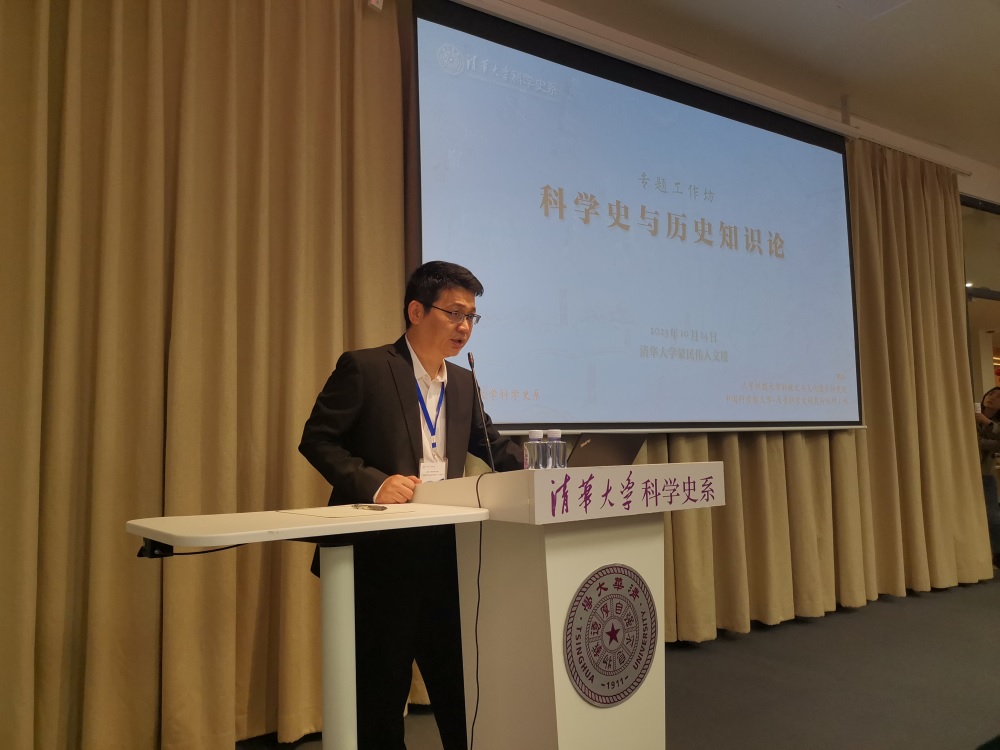
Shen Yubin introduced the workshop by outlining the recent initiatives at the Max Planck Institute for the History of Science to shift the study of the history of science toward the history of knowledge under the framework of "historical epistemology." He called on domestic scholars to pay attention to this latest development in the international history of science community.
Sun Mengmeng discussed the research characteristics of "historical epistemology" at the Max Planck Institute for the History of Science from four perspectives: the history of knowledge, epistemological issues, the classification of knowledge, and the historical and practical dimensions of knowledge. She also provided an overview of the preparatory work for the Sino-German partnership group at the University of Chinese Academy of Sciences, titled "The Everyday Practice of Cosmological Knowledge in Ming and Qing China."
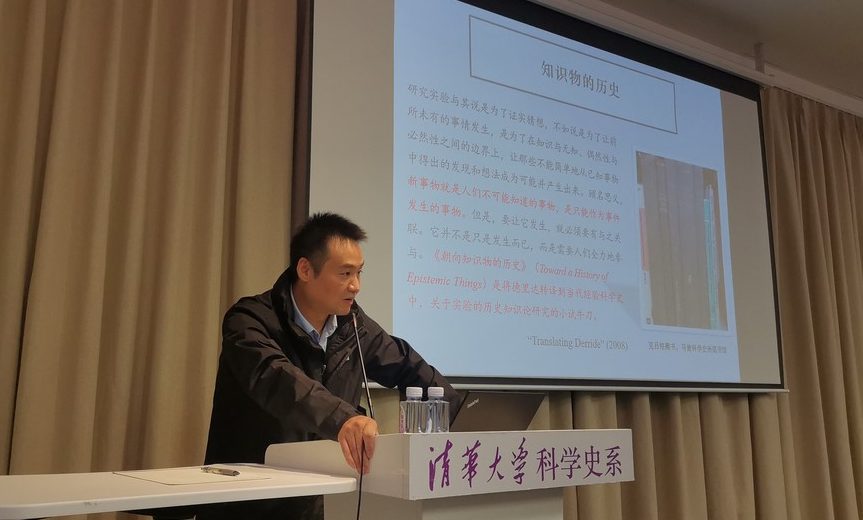
Jin Shixiang, in his presentation titled "Precipitation" and "Writing": From "History of Scientific Thought" to "Historical Epistemology," examined the relationship between the Max Planck Institute's historical epistemology and the history of scientific thought and phenomenology from a historiographical perspective.
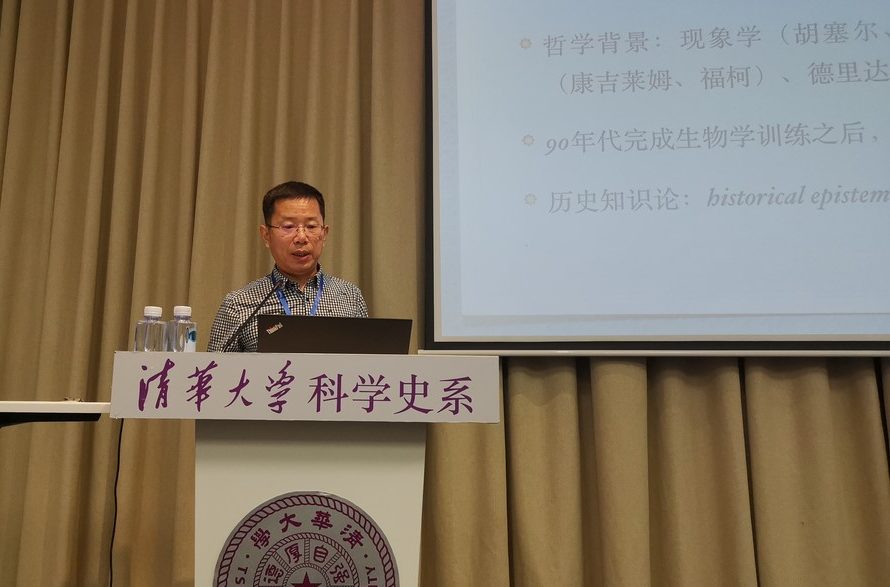
Meng Qiang delivered a report titled "Rheinberg's 'Historical Epistemology,'" clarifying the concept, origins, and academic characteristics of Rheinberg's "historical epistemology" from a philosophical perspective. He argued that the history of knowledge practice might truly integrate the history of science and philosophy of science.
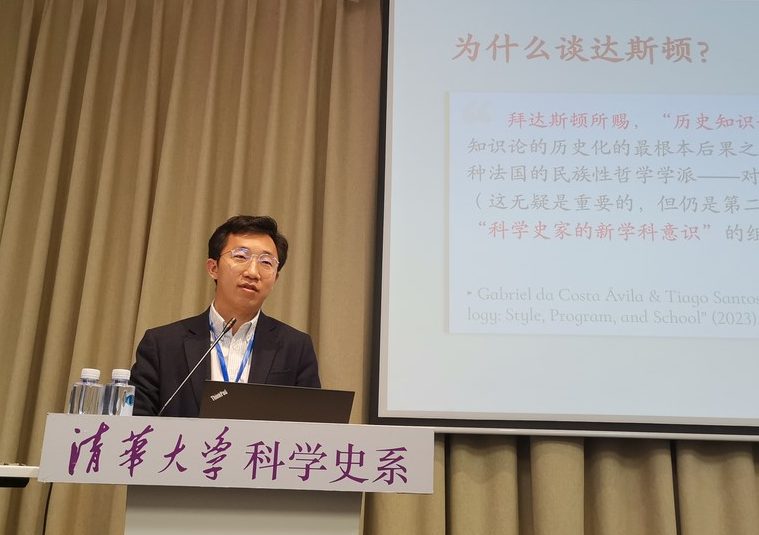
Jiang Che presented "Notes on Daston's Works on Historical Epistemology," evaluating Daston's contributions to historical epistemology from three perspectives: the three contemporary versions of historical epistemology, Daston's program for historical epistemology, and the new research themes explored in her work after Objectivity. She also briefly discussed how the history of natural history could be integrated with historical epistemology in Daston's framework.
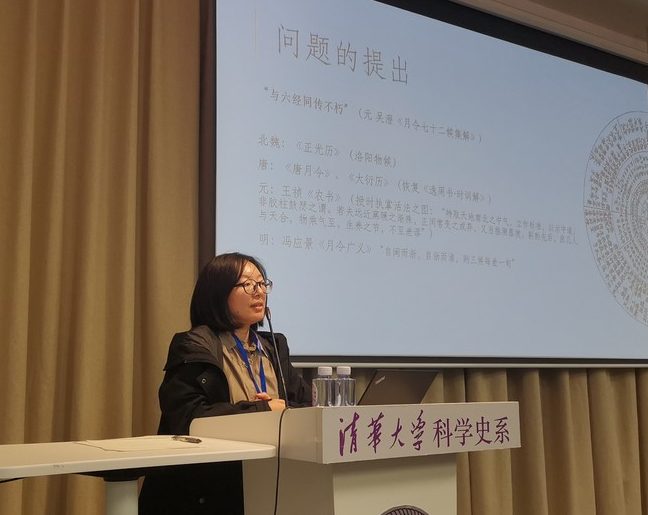
In the afternoon, Sun Mengmeng reported on her recent work "Climate Knowledge Writing and Practice in Ming and Qing Local Gazettes," using the digital humanities tool LoGaRT from the Max Planck Institute for the History of Science to analyze the spatiotemporal distribution and writing structure of the "climate" sections in local gazettes. She examined how local elites utilized traditional seasonal frameworks to write about environmental differences in their regions.
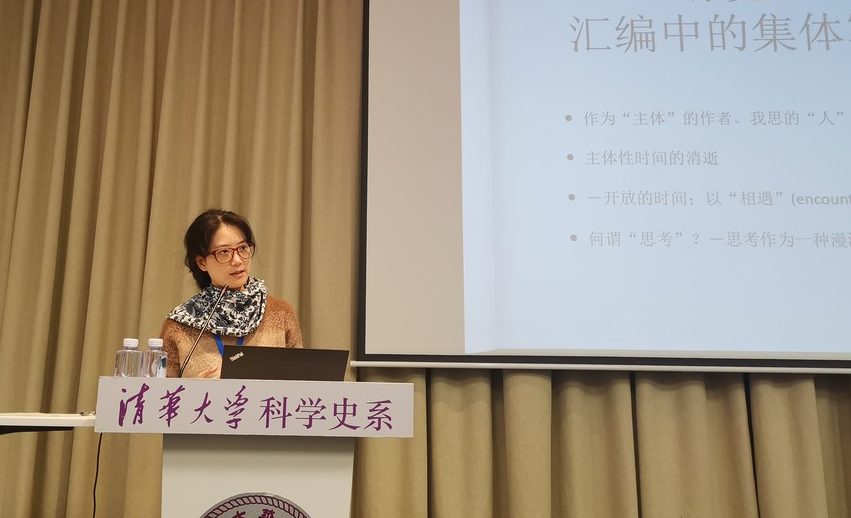
Hu Su's presentation, "Collective Authorship and Time: Late Qing Compilation Texts," explored the challenges collective authorship poses to the history of knowledge. She argued that collective writing, such as in materia medica and local gazettes, raises questions about authorship and agency, leading to a different understanding of time in these texts.
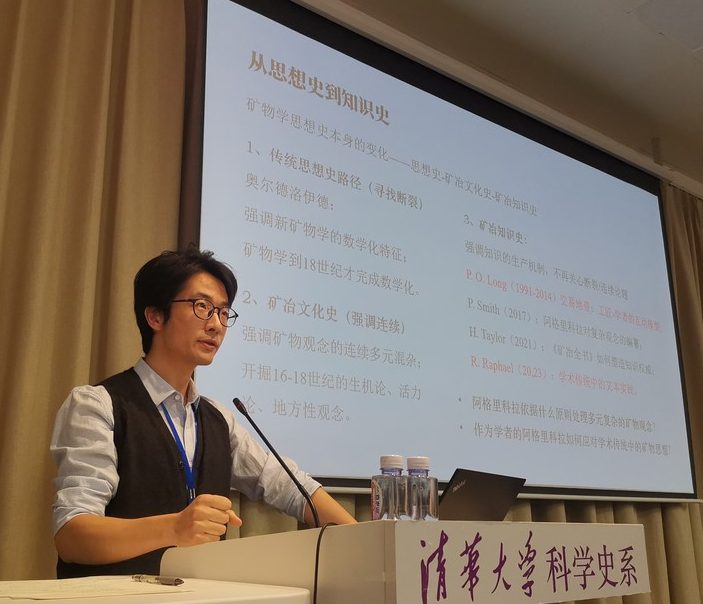
Yan Bichen delivered a report titled "The Production of Agricola's Mineral Knowledge: Appropriation, Translation, and Discourse," presenting a case study of early modern European mineral knowledge history. He demonstrated how Georgius Agricola, in the early 16th century, appropriated and translated diverse mineral knowledge from ancient texts and工匠 experiences into his own natural philosophical framework, thereby shaping a new mineralogy based on specific representational rules.
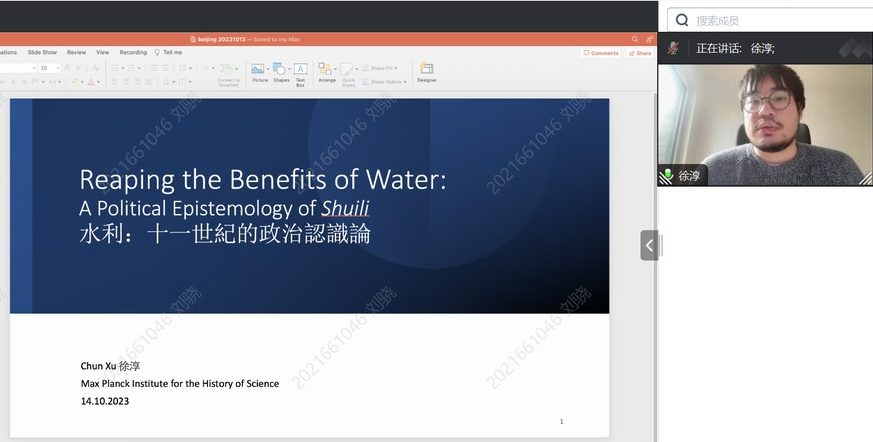
Xu Chun, in his online presentation titled "Hydraulic Engineering: A Political Epistemology of the 11th Century," argued that the fundamental divide between the reformists and conservatives in 11th-century China lay in their differing conceptions of the boundaries of politics, which stemmed from their contrasting information, technology, and knowledge. He emphasized that epistemological considerations—what countsas knowledge, who possesses it, and how it is acquired—have always been central to political discourse.
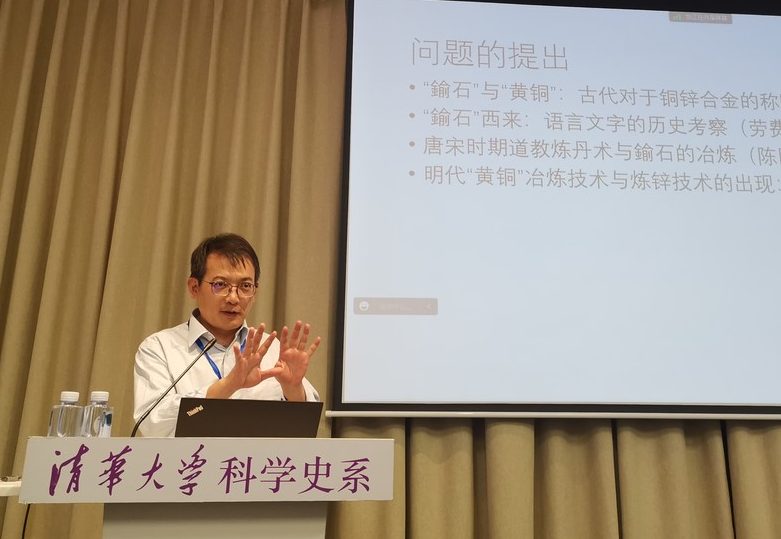
Gao Kelí, in his presentation titled "From Brass to Yellow Copper: The Interaction Between Ancient Chinese Technology and cognition," explored the history of Chinese metallurgy, detailing the process of Chinese understanding and mastery of brass (copper-zinc alloys) from its introduction in the Tang and Song dynasties to the development of zinc smelting technology in the Ming dynasty.
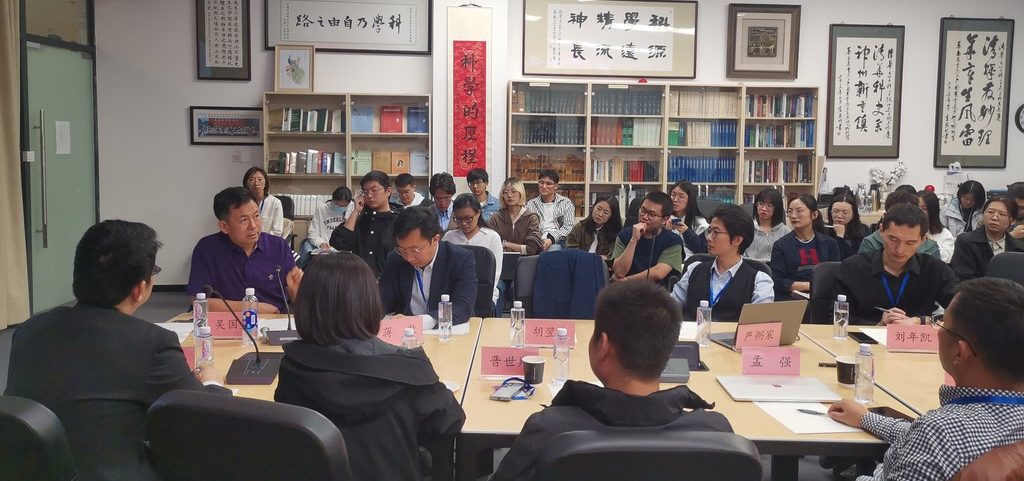
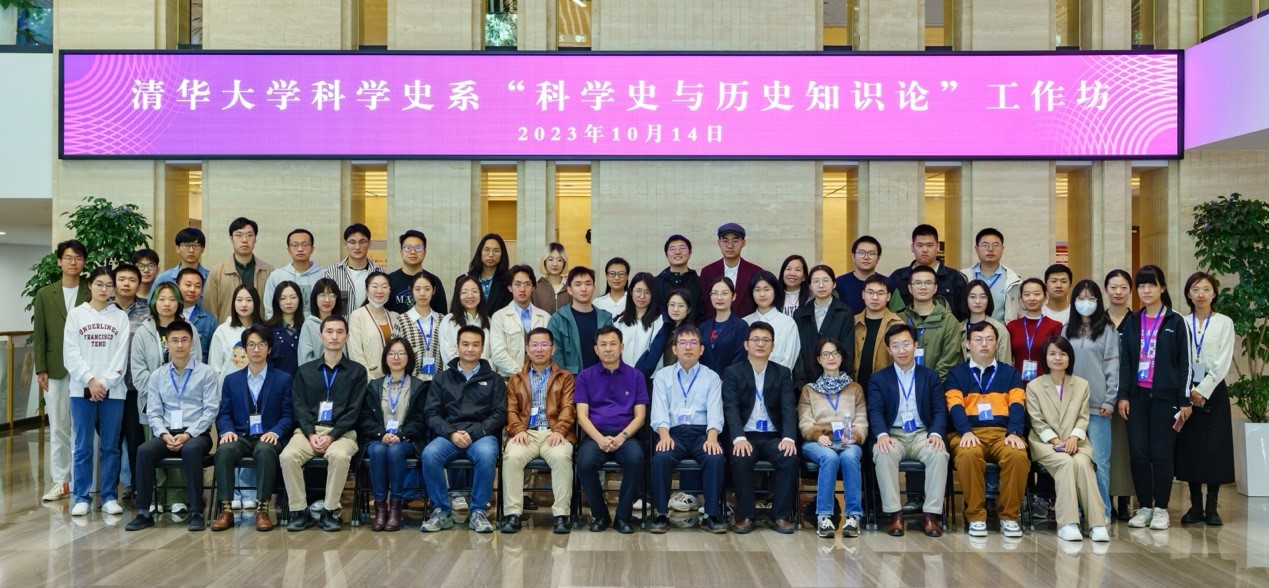
The workshop concluded with a lively summary discussion and a group photo of all participants.
Article by Zhao Yuhuan
Photos by He Xiaoao and Sun Delli
Reviewed by Shen Yubin and Jiang

